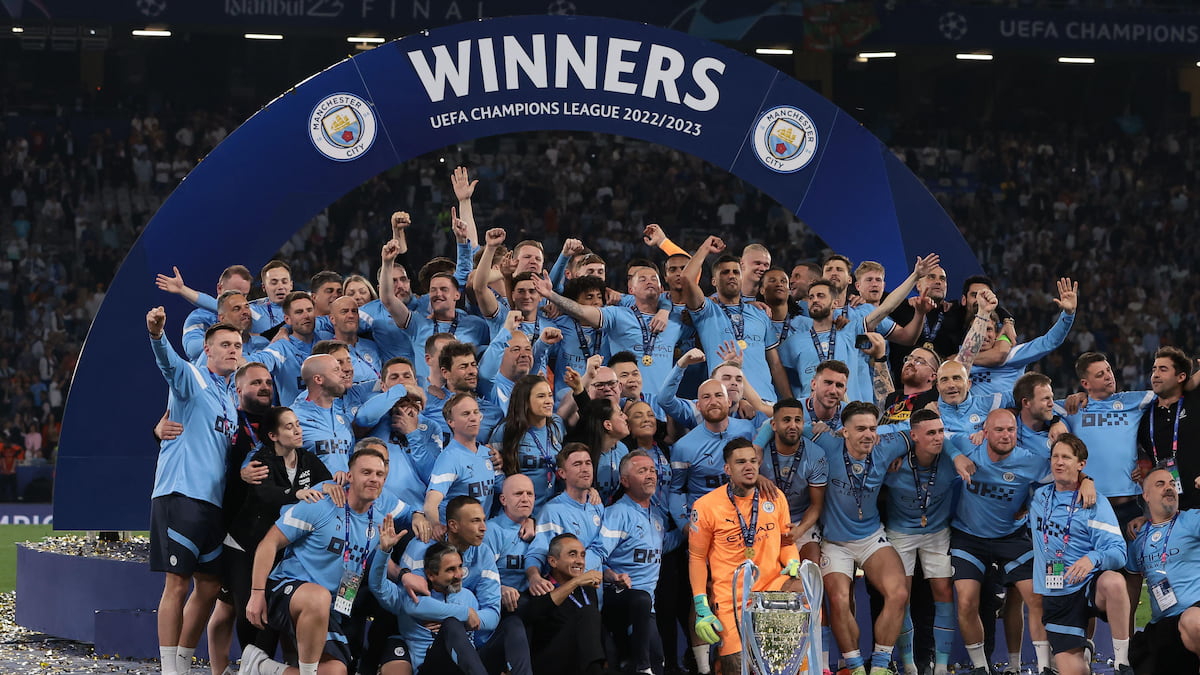Latest Sports Picks, News and Previews

If you’re a big soccer fan, you most likely watch the English Premier League at the very least, even if you enjoy Italian, Spanish, German or American soccer as well. The EPL has grown to become not only the most popular soccer league in the world but one of the most popular sports leagues in general and is #4 on the list of pro sports leagues by revenue.
To get to this point, the Premier League had to go through multiple ups and downs, effectively leading it to be what it is today. In this article, we’ll discuss how the Premier League became a worldwide phenomenon, including the tactics used to increase the league’s popularity and how it managed to create the most sustainable soccer league in the world to this day.
The first step to populating any league with players and revenue is marketing. This is where the EPL’s social media engagement stuck in the American markets, as an online presence would be needed to attract new fans. This wasn’t just important for stretching to American fans but fans from any nation. By simply creating official team accounts and dedicated fan pages, the EPL’s notoriety began to climb. Since these targeted digital campaigns, the league recognized a 33% increase in American viewers over five years from 2019-2024.
The next factor of the English Premier League that made it stick is the quality of play and the height of competition.
The league is already structured much differently than American sports leagues by completely omitting a playoff bracket altogether. Instead, one of the 20 teams with the most points by the end of the regular season takes the trophy without question. In essence, you have a battle of consistent quality throughout the entire season, which American fans began to enjoy in contrast to the “earn a wildcard to get into the playoffs” before participating in a one-and-done playoff system.
In addition to all these typical factors, the Premier League is extremely diverse in player ethnicities, which inherently leads to a greater diversity in athleticism and skill, something not as apparent in sports dominated by only one nation (like American basketball or football). In turn, the quality of games and overall league standings is extremely competitive, leading the Premier League to maintain viewership and drastically increase it.
In 2003, the club team known as Manchester United signed Portuguese legend Cristiano Ronaldo, a player who dominated the league in goal scoring. From 2003-2008, (before moving to the Spanish La Liga) he scored a whopping 92 goals for United. This essentially showcased the potential not only for amazing players in the Premier League but also ones from outside of the U.K., leading more and more international talent to be recruited.
Plenty of other superstar players helped contribute to the dominant rise of the Premier League, including Manchester United’s English legend Wayne Rooney and Arsenal’s French legend Thierry Henry. After seeing just how competitive the league and how talented some players were, onlookers began to realize just how legitimate the English Premier League was not just in England but the entire world.

Liam has been a major sports fan and soccer player for over a decade, with a particular focus on major top-level soccer leagues, including the EPL, La Liga, Serie A, Bundesliga and MLS. He has written numerous promotional articles for various top sportsbooks and continues to publish historical and factual sports articles covering the NFL, MLS, NHL, MLB, EPL and more.